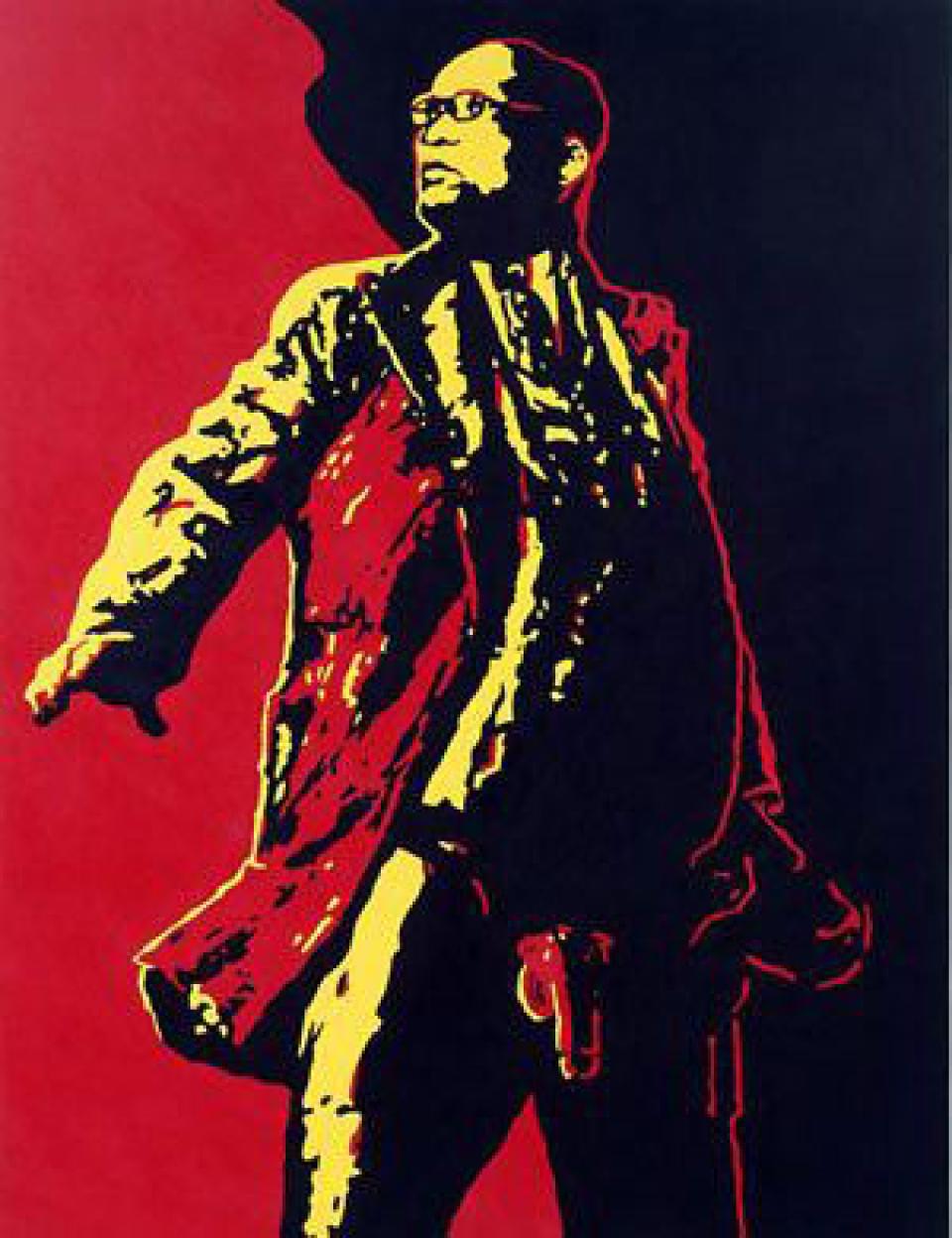
The Spear is a painting that depicts the African National Congress (ANC) leader and South African president Jacob Zuma in a rallying pose, with genitals exposed. It has caused controversy and been defaced. Images of the painting have gone viral on internet. In late May 2012, the South African Film and Publications Board classified the painting, as “16N” – not suitable for people under the age of 16 because it contains nudity. But in a country where one in four women is raped, Sonia Randhawa wonders just who the ban is supposed to protect.
The ANC is inspiring. To struggle, victorious, against the weight of apartheid: the memory of the queues of black men and women lined up to cast their votes for the first time remains potent. And if it remains potent to me, the power the ANC has, just by virtue of being the ANC, over South Africans can be nothing less than awesome, in the older, God-invoking sense of the word.
But freedom fighters are not infallible, and there are too many examples in both Africa and Asia of freedom fighters who were better suited to lead the fight than to lead in freedom. So even while noting that the struggle to dismantle the legacy of apartheid is ongoing, that racism strikes has a persistency that many other -isms lack, there still needs to be room to criticise leaders, even if that criticism comes from a bad place, even if it is being made by people who want a return to the evils of apartheid. But this persistency of racism is what makes the ‘banning’ and controversy over The Spear anything but a black and white issue. Because, to those howling with outrage at the display of the presidential penis, it is not Jacob Zuma that is being shown disrespect. This is not about the man and his manhood, it is about disrespect to the ANC, disrespect to the struggle, disrespect to the continuing frustrations that are the legacy of apartheid.
And now to backtrack. The Spear does not appear to be coming from that place. It does not appear to be coming from someone who is treating the struggle of the ANC lightly, or the fight for equality lightly. It is coming, it appears to this outsider, from someone who is pushing for the fight for equality to continue, to be broadened and to encompass all citizens, specifically to include women. And the howls of outrage are drowning out dissent and criticism of the most powerful man in the nation, not to protect the weak and marginalised. But what worries me is not the legitimacy or otherwise of the criticism. There are two things that worry me.
First, the scenes are reminiscent of what happened in Malaysia when a collection of NGOs tried to discuss freedom of religion. The howls of protest, the intimations of violence and, ultimately, the shutting down of discussion and debate. Shutting down discussion does not solve problems. If fear wins, it breeds fear, not respect. And fear in turn breeds distrust and ultimately violence – because there are no other channels for dissent.
Second, is the arguments that are being put forward to silence dissent by more ‘considered’ voices. We need to protect the children. We need to stop young people from seeing porn.
These arguments ring especially hollow in this case. The Spear draws attention to (unclothes) patriarchy. It focuses attention on the real concerns about the presidential penis – alleged rape, promiscuity and polygamy. In a society where one survey revealed that over a quarter of South African men rape a woman before they reach the age of 20, there is a vital need for children to be talking about these issues. Children need to be educated about rape, about respect, about power and about controversy. The sight of a representation of the president’s genitalia is less likely to cause a 15-year-old girl offense than the prospect of gang rape. And yet, the measures being taken to protect the girls are to stop the talk, stop the debate.
This isn’t just a South African issue or a South African tendency. The rallying cry of ‘protect the children’ leads the vanguard in all discussions about online censorship. We need more debate about what remains clothed, hidden and protected (other than the presidential penis!) by these cries: that censorship is about politics and patriarchy rather than protection. And this is all a world away from empowerment.
Responses to this post
Good day! I read your article and learn about it. Thanks for sharing your expertise and information about this study.
imarksweb.net
- Add new comment
- 10940 views





Add new comment